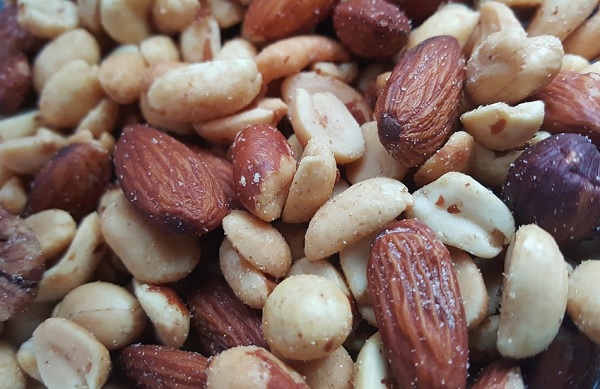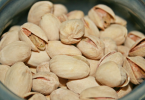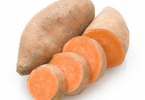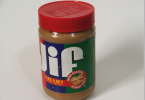Today’s question: can dogs eat nuts? Are nuts good or bad for dogs? Scroll down for detailed answers.
Humans love nuts, and strangely enough, the fact that humans want to share the joy of nuts with their dog is evident. Naturally, when an owner has a favorite food, they want to share this love with their best friend! When considering pet topics on Google searches, “dogs and nuts” is one of the top searches. This search may be so popular because humans find nuts to be natural food sources and perhaps safe for their dogs, or they want to verify whether dogs have an allergy to nuts in the same manner humans do on occasion. Searching for ‘Dogs and …” regarding any type of food is a good idea so as not to risk potential harm to your pet. Many dog lovers may ask: can dogs eat nuts?
Nuts, as a general term, refers to a broad range of fruit composed of a hard shell and a seed. Depending upon the source, nuts vary in nutritional value. Generally nuts can be considered a good source of energy and protein. Many nuts are also a good source of vitamin E, vitamin B2, fiber, folate, and the essential minerals phosphorus, magnesium, copper, potassium and selenium. Nuts have a vast array of nutritional benefit in such a small piece of food!
Raw food is a trend in dietary circles and used as a measure of goodness by foodies. Raw foods tend to hold more nutritional value and have less risk of bacteria build up than food that has been cooked. In their raw form, nuts can be generally considered as a healthy food, but only in moderation. More often than not we associate nuts, or peanuts at least, as oily and covered in salt. Not all peanuts are oily, and peanuts may be served unsalted. The variety in which nuts, and peanuts, are to be enjoyed is really up to the person eating the nuts.
If humans may eat nuts, how about dogs?
Can Dogs Eat Nuts?
The answer depends on the situation. A straight answer of ‘yes’ or ‘no’ cannot be given because there are wide ranges of nuts. There is not a simple ‘yes’ or ‘no’ answer to this question. Each nut will vary, as will the size of the dog and the breed. Dogs that are small in stature may not have the ability to break down a nut in the same manner as a larger dog. Certain breeds of dogs may tolerate nuts better than others, mostly due to their evolutionary ability to survival in the wild under rough conditions. Most dogs are okay to eat the odd nut here and there. As a staple in your pup’s diet, nuts are probably rather unhealthy due to their high fat content.
There are many benefits to eating nuts, despite the high fat content. Dogs can enjoy the added protein and minerals nuts have to offer, as well as the added shine to the coat. Nuts also taste heavenly to a dog and make you a very popular owner for a while afterward.
With such a variety of nuts on the market, which nuts are actually safe for dogs to eat? Analyzing the nutrient and toxin content of any nut before feeding it to your dog is incredibly important. Highly fatty nuts can be assumed to be upsetting to a dog’s stomach, and certain nuts contain toxins that can produce harmful effects. Determining which nuts are toxic and which nuts are harmless is a simple, easy task that will save you and your pup a lot of hardship, pain, and money in the long run.
Peanuts
The most commonly consumed nut by humans is the peanut. Although high in fats, peanuts are an excellent source of protein, often considered as a super food for those who enjoy long outdoor excursions (it’s the primary ingredient in Trail Mix). For dogs, raw or roasted peanuts are safe to eat. Due to the relative safety of the peanut, as well as the ease and transportability of the nut, peanut use by humans are sure to transfer to peanut use of a dog.
Peanut butter also works as the go-to in entertainment when putting the peanut butter into the hole of a bone and have your dog lick the peanut butter out of the bone for hours. Peanut butter truly is a treat for dogs and can benefit their health in many ways as long as moderation and common sense are used. Occasional treats show a benefit more than a constant feeding. Peanut butter is the go-to food to hide medicine in pill form.
Although dogs do not express allergies, reactions, or distress like humans, dogs can suffer from allergies to peanuts. Ensure that your dog does not have any nut allergies by consulting you vet first. Also, be sure to watch your dog and note of any sudden changes in behavior or wellness after consuming peanuts. With the probability of death deriving from an allergy to peanuts, an important step of dog care is to keep your pet alive after eating this treat.
Peanuts are high in fat content, so do not over indulge your dog in them. Dogs have a difficult time digesting foods with a high fat content and a slow digestion could make your dog distressed or ill. Too much fat can lead to diarrhea and vomiting. In extreme cases, excess fat will cause pancreatitis. Pancreatitis is an inflammation of the pancreas, which, although treatable, is extremely painful; so do not put your dog through it.
You should avoid salted peanuts for your dog as it can lead to sodium ion toxicosis. If you are going to use some peanut butter to add a bit of flavor to a treat, choose a low salt one and without xylitol. Many brands that make peanut butter contain xylitol and xylitol is highly toxic to dogs. With the popularity of peanut butter and dogs coupled with the awareness of peanut allergies, many people are making their own peanut butter that is safe for dogs to ingest. In the event you do not wish to take the peanut risk with your dog, a homemade peanut butter without harmful toxins can be found somewhere locally or
Almonds
Although dogs tend to love the taste of almonds, the almond itself is hard for them to digest. Almond nuts are not toxic, but their mineral breakdowns can lead to an upset stomach and cause gastric intestinal distress. A little bit of almond butter is fine for dogs as long as the butter is made without xylitol – a known toxin to dogs. Almonds covered in chocolate or yogurt are not good for dogs either, so keep them locked away to prevent the inevitability of a distressed dog.
Macadamia Nuts
Macadamia nuts are also high in fat, which dogs struggle to digest. This can lead to upset stomachs and even pancreatitis. Another negative aspect is that macadamia nuts are said to contain an unknown toxicity that can cause neurological damage in dogs. So stay clear of macadamias when considering a snack for your dog.
Pecans and Hickory Nuts
Pecans and hickory nuts are also unsafe for dogs to enjoy. Pecans and hickory nuts have been noted to cause gastric intestinal discomfort and obstruction in dogs, so pecans are also on the ‘do not’ list. Pecans and hickory nuts have been reported to contain juglone, a toxin that can cause laminitis in horses.
Given that dogs and horses have similar biological structures, pecans and hickory nuts are probably highly unsafe for a smaller animal such as dogs. When a large animal has a reaction to a toxin, a smaller animal does not stand as much of a chance overcoming the toxic effects. Laminitis affects the feet of hoofed animals, causing a severe tenderness and reducing the ability to walk. If the condition progresses enough in the animal, laminitis can lead to euthanasia.
Walnuts
Last on that list of nuts to feed dogs are walnuts. Walnuts are nuts in which tremorgenic mycotoxins are contained, a toxin that can lead to a seizure in dogs. Walnuts are also high in fat, which makes them difficult for dogs to digest. Walnuts are nuts within a hard shell that is often difficult to open. Dogs generally do not have the ability to open a walnut on their own; however, if a dog eats a full walnut, or many of them, a trip to the veterinarian should be made immediately.
In the event you crack a walnut and offer a bit to your dog, there is a high probability your dog will be fine. A small amount of walnut (scraps licked off the floor) will not generally harm a dog, but eating multiple walnuts, or brownies backed with walnuts, may lead to overexposure to the toxin tremorgenic mycotoxins, thereby raising the rate of seizure risk.
Hazelnuts
Hazelnuts have become popular over the year as an alternative to peanuts. Many people and animals have an allergy to peanuts that can result in death; therefore, the hazelnut has begun to take a strong presence in dietary choices. Most people are able to eat hazelnut without affect, and most people find hazelnuts to taste similar to cocoa and
Dogs can eat hazelnuts. Hazelnuts are lower than most of their counterparts in the nut family as far as their fat content goes. Due to their small size, crushing the nuts up and sprinkling the powder over the dog’s food is a good idea. Especially with smaller dogs, this measure should be taken, as nuts do pose a choking hazard on the throats of smaller dogss. Other than their size and potential to become a choking hazard, hazelnuts contain no harmful toxins and are perfectly suitable for dog consumption.
Cashews
Cashews are also suitable for dogs, despite their slightly higher fat content. The higher fat content means cashews should be limited, even more so than other nuts. One thing that is highly important when considering cashews, however, is that the nuts are cooked or roasted. Raw cashews will contain a toxin that is killed during the cooking process, which makes them safe for dogs to eat.
Nuts Should Be Fed In Moderation
So, as with humans, nuts can be a part of a balanced and nutritious diet. They are a brilliant source of energy, fats and protein, making them ideal for an active work dog, or one who just enjoys getting out and burning their energy. But nuts should be eaten in moderation. If your dog is not active but also consumes a lot of nuts, it will gain a lot of weight and have great trouble digesting them, leading to an upset stomach and general discomfort. They generally have a high fat content, which is why they are ideal for active dogs, but old or lazy dogs will take no benefit from snacking on nuts.
Nuts should only be used as a snack or just sprinkled over their food from time to time, not every day. Every day consumption of nuts is too much and will only lead to weight gain and digestion problems. Again, it is advised that you consult your vet as well, because your dog may have allergic reaction to nuts despite not showing signs of an allergy in as violent a manner as humans would.
Realistically though, there is no need to feed your dog to eat nuts of any kind. They are not natural to a canine diet and all of the nutritional benefits found in nuts can also be found in food sources that are natural to a dog’s diet, such as meats and vegetables. Any high quality dog food will contain the right levels of protein, minerals and fats and will have been tailored to the correct levels to suit your dog’s age, breed and size.
Conclusion
Like stated earlier, dogs can only eat some varieties of nuts. However, a dog’s diet does not need the variety that a human’s does and offering too much variety can lead to problems. You may develop bad eating habits in your dog, who believes nuts are a staple in his diet. You may also be slowly poisoning the dog as well, so think long and hard before you decide to start feeding your dog nuts as a snack.
References:
http://www.dogster.com/dog-health-care/can-dogs-eat-nuts-almonds-peanuts-dog-health-food-tips
http://mom.me/pets/17952-nuts-are-unsafe-dogs-eat/
http://www.aspca.org/pet-care/animal-poison-control/people-foods-avoid-feeding-your-pets








Leave a Comment